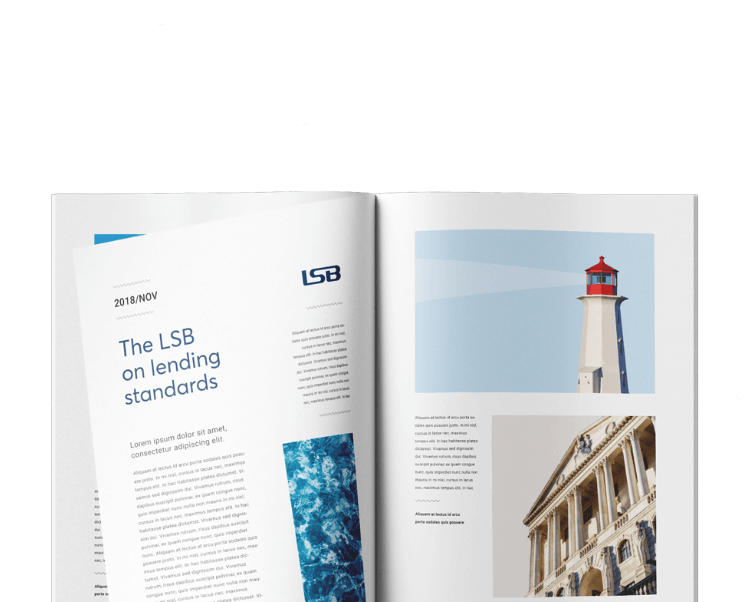Download a copy of this thought piece here.
In August, we released a long read looking at how to support customers with money management difficulties during the cost-of-living crisis. This is an abridged version of the full piece, which can be accessed by registered firms here.
This summary focuses on what firms can do to support customers during the cost-of-living crisis. It particularly looks at how to support customers in the pre-arrears stage. This is when customers are at an increased risk of financial difficulties but are yet to miss a payment or enter arrears. Although concentrating on the unfolding events around the cost-of-living crisis due to the major impact on customers, the insight within this piece relates to pre-arrears practices that are applicable at all times.
The cost-of-living crisis
The cost-of-living crisis is greatly impacting both personal and business customers. Customers are having to adapt their budgets on a near monthly basis, with inflation rising and cost uncertainty in a number of sectors.
This crisis would have a major impact if it hit a healthy economy, but coming so soon after coronavirus, it could be even more damaging. Personal and business customers who were financially impacted by Covid may have been hoping that 2022 would be the turning point. Instead, the economy and many customers’ personal finances have worsened.
The Standards of Lending Practice for both personal (the personal Standards) and business customers (the business Standards) includes requirements to identify and support customers in pre-arrears. Put simply, customers should not have to miss a payment to get help. Good practice in this area is key to treating customers fairly as it can stop problems escalating by providing timely, proactive support. But doing this is not easy, and this piece focuses on both the challenges and opportunities in this space and considers how firms can improve customer outcomes.
Challenges and opportunities
From previous discussions with both registered and non-registered firms, we understand there are challenges when it comes to knowing the right steps to take with money management. This is especially the case when it comes to proactive customer contact.
Firms may analyse data or look for patterns that lead them to believe that a certain group of customers may be at risk of entering financial difficulties. The challenge for firms is then to know what to do with this information. For example, contacting customers proactively and questioning about overspending, a lack of income or some other trigger could provoke a negative reaction from the customer.
We know some firms have tried to make proactive money management contact, with trials contacting customers identified as being at risk of falling into difficulties. The results of the trials were deemed to be mixed, mostly because customers did not always appreciate the contact and were not thought to positively change behaviour or seek early help as a result. This does not necessarily mean the same will be true for other firms.
Firms have also told us of the challenges involved in identifying customers at risk of financial difficulties. Despite there being numerous data sets that are seen as potentially useful, there is no silver bullet to finding this customer group. Some firms have found unclear results, with customers identified as potentially being in pre-arrears who were not at particular risk, with later customer journey reviews showing they did not go into financial difficulties.
Whilst recognising the challenges facing firms, we look to focus on what will work on the first line in a proportionate and practical way. Part of this will require firms to ensure they focus on the training element of the Standards, ensuring that staff have the knowledge and skills to support customers in difficulty.
A tailored response
Firms and staff need to appreciate the various ways the cost-of-living crisis is impacting both personal and business customers. This is a unique crisis and there are risks if staff are expected to rely purely on training for ‘business as usual’ financial difficulties. In part, this is because of the scale of the crisis and the fact it is affecting so many sectors and elements of people’s lives.
For example, as prices increase and fluctuate across sectors, first line staff should understand how customers are impacted. It may be tempting for firms to assume that staff will already know how the cost-of-living crisis is affecting customers. This is due to both the media attention on the subject and the impact the crisis will be having on staff directly. However, assuming knowledge risks leaving staff without consistent and effective guidance.
There will be times when it is difficult to look ahead and estimate what future costs will be, for example, when making a payment plan. To use the example of changing energy price caps, it may be that a plan is affordable in April but is not following a price increase in October. To tackle this, there should be flexibility built into any plan, along with touch points to check in on the customer and see the plan is working. Customers should also be encouraged to get in touch if their circumstances change or if they find the arrangement now unaffordable.
Signposting
Signposting is always an important step in supporting customers when they require help beyond the remit of the firm. This is especially the case now and firms should look at the support available for customers. This includes looking, where possible, at local support that customers could be signposted towards. This may be achievable especially when thinking about business banking, as relationship managers often focus on local regions and so can use their knowledge and contacts in this area.
Third party tools
For this piece, we spoke to the Money and Pensions Service (MaPS) to understand the support available for customers in relation to money management. MaPS is an arm’s-length body sponsored by the Department for Work and Pensions, with a mission to ‘help people – particularly those most in need – to improve their financial wellbeing and build a better, more confident future.’[1]
A key focus for MaPS is encouraging customers facing financial difficulties to speak to their creditors and seek debt advice at the earliest possible stage. Early engagement greatly increases the likelihood of putting in place a plan or taking other steps to improve the customer’s financial situation. This highlights the need for firms to treat customers coming forward proactively in an empathetic and effective manner
The Money Helper website is run by MaPS and provides information and tools to help customers with their finances. The site includes free money and pensions guidance, tools, and calculators (for example, a budget planner and a ‘bill prioritiser’), along with information on how to manage money in uncertain times. Customers can also access the Money Navigator tool; customers can use Money Navigator to find out ‘what issues you need to deal with first; ways of staying on top of your bills; how to find extra support you’re entitled to; and where to get extra help.’ By getting a clear picture of the customer’s situation, firms can better tailor signposting to mention specific tools or support that may be useful.
Lessons learned
The cost-of-living crisis is impacting customers in a different way to the coronavirus pandemic. However, this does not mean that banks, lenders, and financial services firms should not take lessons from the way they reacted to and supported customers affected by Covid and the measures taken to tackle it. We know that businesses around the country reacted quickly and often effectively to support customers in difficulty. Some measures which would have been unforeseeable a few months before, such as majority remote working, swiftly became the new normal. There were also resource challenges, with firms registered to the Standards dealing with increased levels of financial difficulty whilst balancing operational challenges, such as staff absences due to illness.
We know that during the pandemic, some firms changed their communication strategies based on learnings gained from analysing customer behaviour. Firms should continue to review the insight and data they collect to understand how they can adapt to increased customer engagement, especially in the pre-arrears space.
We are also aware that the pandemic brought about a change in some forbearance practices used by firms. These were needed to provide the best solutions for customers struggling at the time, and it is valuable for firms to think about what may now be suitable for customers during the cost-of-living crisis.
As highlighted to us by MaPS, the fundamental consideration for firms in relation to money management is that customers should not have to miss a payment to get support. With this in mind, firms should look at what is out there for customers, educate their staff accordingly, and look to promote an environment where customers with money worries can take control of their finances at the earliest stage. With a culture that is outcomes focused and with staff understanding their responsibilities to those in pre-arrears, firms have the potential to deliver for customers during an exceptionally challenging time.
If you have any questions about this piece or if we can help you or your firm, please contact us at insight@lstdb.org.uk or by using the details below.
We would also appreciate your feedback on this piece. To provide this, please use the QR code below.

Contact details
Anna Roughley – Head of Insight and Engagement
annaroughley@lstdb.org.uk – 07392 867 176
Harry Hughes – Senior Insight Manager
harryhughes@lstdb.org.uk – 07387 108 498
[1] Money and Pensions Service, Our mission






